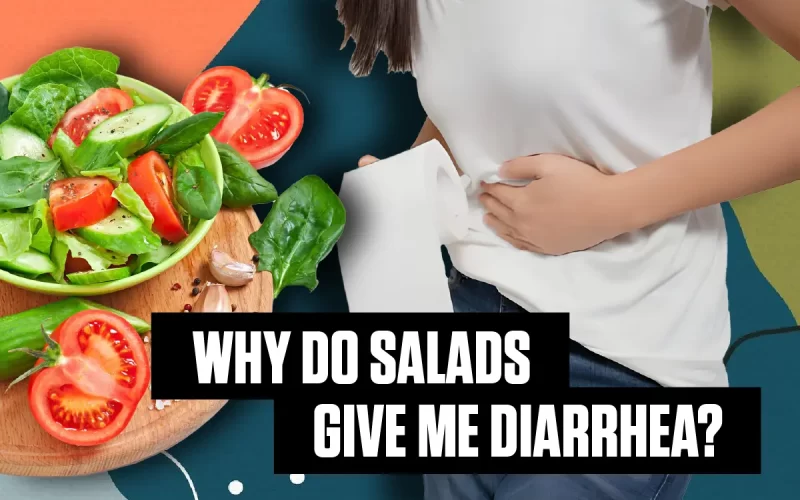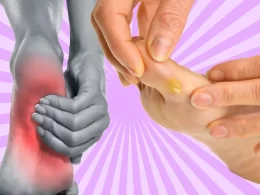Table of Contents Show
Salads are often considered a healthy choice for lunch or dinner. They are rich in vitamins, minerals, antioxidants, and fiber that can benefit your digestion, immunity, cholesterol levels, and more. However, sometimes eating salad can have an unpleasant side effect: diarrhea.
Diarrhea is a condition where you have loose or watery stools more than three times a day. It can be caused by various factors, such as infections, medications, allergies, stress, or underlying diseases. But in some cases, it can also be triggered by eating salad.
So why do salads give me diarrhea? And what can I do to prevent it? In this article, we will explore some of the possible causes of diarrhea after eating salad and some tips on how to avoid it.
possible cAUSES OF why do salads give me diarrhea
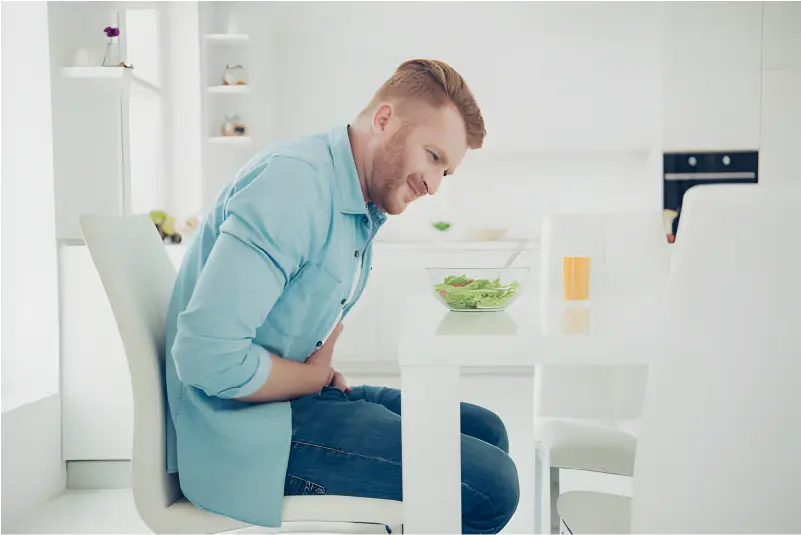

There are many reasons why eating salad can cause diarrhea. Some of them are:
Bacterial Infections
One of the most common causes of diarrhea after eating salad is bacterial infections. Raw vegetables in salads can harbor harmful bacteria such as E. coli, Salmonella, Listeria, or Campylobacter if they are not washed properly or contaminated by animal feces or dirty water. These bacteria can enter your digestive system when you eat salad and cause inflammation, cramps, nausea, vomiting, fever, and diarrhea.
Fiber Intake
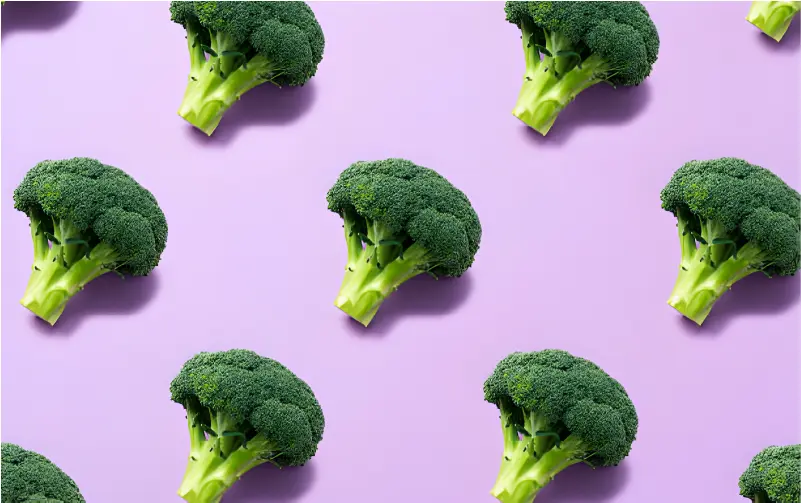

Another possible cause of diarrhea after eating salad is fiber intake. Fiber is a type of carbohydrate that is not digested by your body but helps move food through your intestines. Fiber can have both positive and negative effects on your digestion, depending on how much you consume and how your body reacts to it. Fiber can help prevent constipation, lower cholesterol, regulate blood sugar, and promote a healthy gut microbiome. However, if you eat too much fiber or increase your fiber intake suddenly, it can also cause gas, bloating, and diarrhea.
This is because fiber can draw water into your colon and speed up the transit time of your stool, making it loose and watery. Some vegetables in salads, such as lettuce, spinach, kale, cabbage, broccoli, cauliflower, and carrots, are high in fiber and can cause diarrhea if you eat too much of them or are not used to them.
Food Intolerance
A third possible cause of diarrhea after eating salad is food intolerance. Food intolerance is a condition where your body cannot properly digest or absorb certain foods or ingredients. This can cause various symptoms, such as abdominal pain, bloating, gas, nausea, vomiting, and diarrhea. Some people may have food intolerance to certain vegetables in salads, such as onions, garlic, peppers, tomatoes, cucumbers, or radishes. These vegetables contain compounds called FODMAPs (fermentable oligosaccharides, disaccharides, monosaccharides, and polyols), which are poorly absorbed by some people and can cause digestive problems.
Other people may have food intolerance to certain dressings or toppings in salads, such as dairy products, gluten, eggs, nuts, or soy. These foods can trigger an immune response or an enzyme deficiency that can cause diarrhea.
Pesticides
A fourth possible cause of diarrhea after eating salad is pesticides. Pesticides are chemicals that are used to kill or repel pests that can damage crops. However, some pesticides can also be harmful to humans if they are ingested in large amounts or over a long period of time. Pesticides can interfere with your nervous system, hormonal system, immune system, or digestive system and cause various symptoms, such as headache, dizziness, nausea, vomiting, diarrhea, or even cancer. Some vegetables in salads may contain traces of pesticides if they are not grown organically or washed thoroughly before eating.
How to stop diarrhea after eating salad
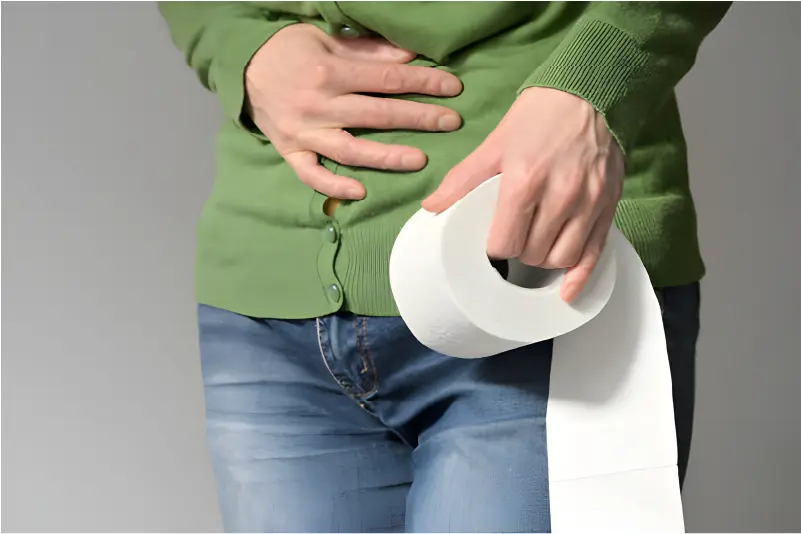

If you love eating salad but hate having diarrhea afterwards, here are some tips on how to avoid it:
Wash Your Vegetables
The first and most important tip is to wash your vegetables before eating them. This can help remove dirt, bacteria, parasites, and pesticides that can cause diarrhea. You can use clean water or a mild vinegar solution to rinse your vegetables thoroughly under running water. You can also use a vegetable brush or a paper towel to scrub the surface of hard vegetables like carrots or cucumbers. You should also peel off the outer layers of leafy greens like lettuce or cabbage and discard any damaged or wilted leaves.
Eat Smaller Portions
The second tip is to eat smaller portions of salad. This can help prevent overloading your digestive system with too much fiber or other substances that can cause diarrhea. You can also eat salad slowly and chew well to help your digestion. You should also drink plenty of water to stay hydrated and help flush out any toxins or irritants from your body.
Avoid Certain Ingredients
The third tip is to avoid certain ingredients that can trigger diarrhea in some people. You can try to identify which vegetables, dressings, or toppings cause you problems and eliminate them from your salad. You can also look for alternatives that are more suitable for your digestion. For example:
- If you have food intolerance to FODMAPs, you can avoid onions, garlic, peppers, tomatoes, cucumbers, or radishes and replace them with green beans, celery, carrots, or zucchini.
- If you have food intolerance to dairy products, you can avoid cheese, yogurt, or cream-based dressings and replace them with olive oil, vinegar, lemon juice, or hummus.
- If you have food intolerance to gluten, you can avoid croutons, breadsticks, or pasta and replace them with quinoa, rice, or corn.
- If you have food intolerance to eggs, you can avoid mayonnaise, ranch dressing, or Caesar dressing and replace them with mustard, ketchup, or salsa.
- If you have food intolerance to nuts, you can avoid almonds, walnuts, or pistachios and replace them with seeds, dried fruits, or olives.
- If you have food intolerance to soy, you can avoid tofu, soy sauce, or soy milk and replace them with chicken, fish, or almond milk.
Take Probiotics
The fourth tip is to take probiotics. Probiotics are live microorganisms that can help balance your gut flora and improve your digestion. Probiotics can be found in some foods, such as yogurt, kefir, sauerkraut, kimchi, or kombucha, or in supplements, such as capsules, tablets, or powders. Probiotics can help prevent or treat diarrhea by restoring the balance of good and bad bacteria in your intestines, reducing inflammation, enhancing the immune system, and producing beneficial substances.
Salad and Irritable Bowel Syndrome
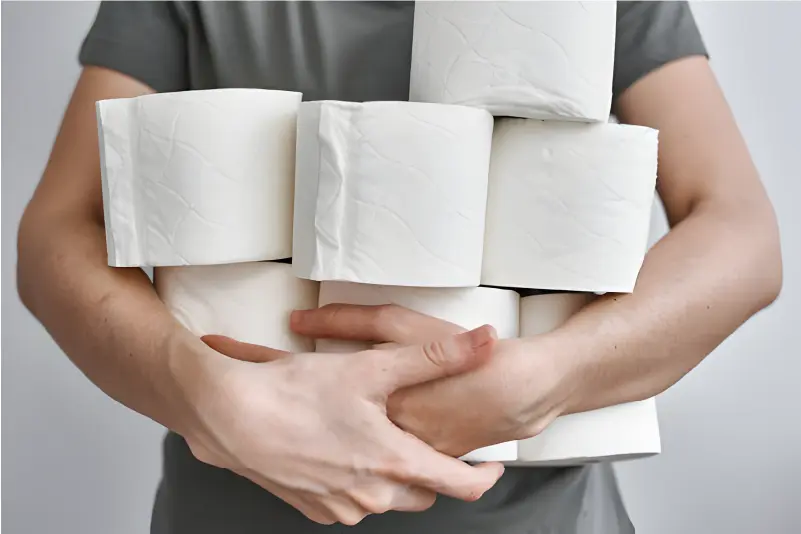

Irritable bowel syndrome (IBS) is a common disorder that affects the large intestine and causes symptoms such as abdominal pain, cramping, bloating, gas, diarrhea, or constipation. The exact cause of IBS is unknown, but it may be related to factors such as stress, diet, hormones, or genetics. Some people with IBS may find that eating salad can trigger or worsen their symptoms. This may be due to the high fiber content or the FODMAPs in some vegetables that can cause digestive problems. If you have IBS and want to eat salad, you should try to identify which ingredients cause you trouble and avoid them. You should also eat small portions of salad and chew well to help your digestion.
Salad and Food Poisoning
Food poisoning is a condition where you get sick from eating food that is contaminated by bacteria, viruses, parasites, or toxins. Food poisoning can cause symptoms such as nausea, vomiting, diarrhea, fever, or dehydration. Food poisoning can be caused by eating salad if the vegetables are not washed properly or contaminated by animal feces or dirty water. Some of the common bacteria that can cause food poisoning from salad are E. coli, Salmonella, Listeria, or Campylobacter.
To prevent food poisoning from salad, you should wash your vegetables thoroughly under running water before eating them. You should also peel off the outer layers of leafy greens like lettuce or cabbage and discard any damaged or wilted leaves.
Salad and Food Allergies
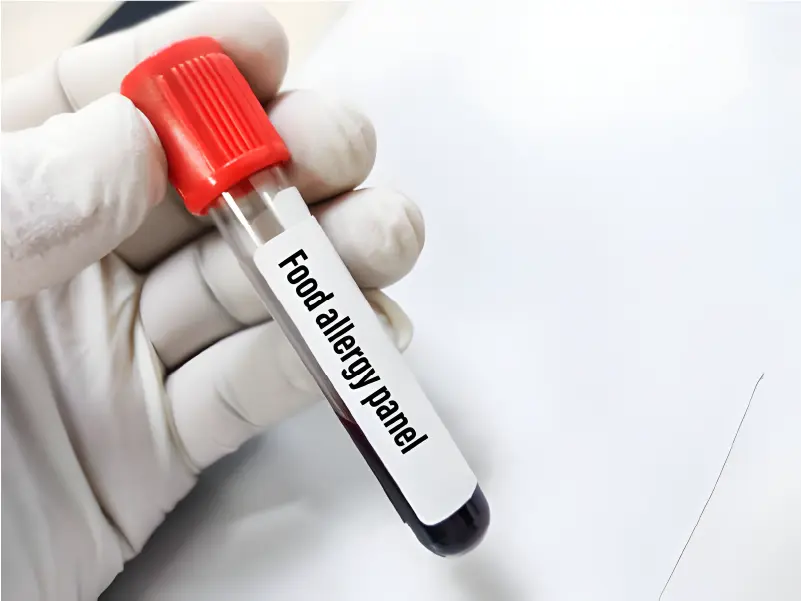

Food allergies are a condition where your immune system reacts to certain foods or ingredients that are harmless to most people. Food allergies can cause symptoms such as itching, hives, swelling, breathing problems, or anaphylaxis. Food allergies can be caused by eating salad if you are allergic to any of the vegetables, dressings, or toppings in it. Some of the common food allergens that can be found in salad are nuts, eggs, dairy products, gluten, soy, or sesame seeds.
If you have food allergies and want to eat salad, you should check the ingredients carefully and avoid any that you are allergic to. You should also carry an epinephrine auto-injector with you in case of an emergency.
Salad and Lactose Intolerance
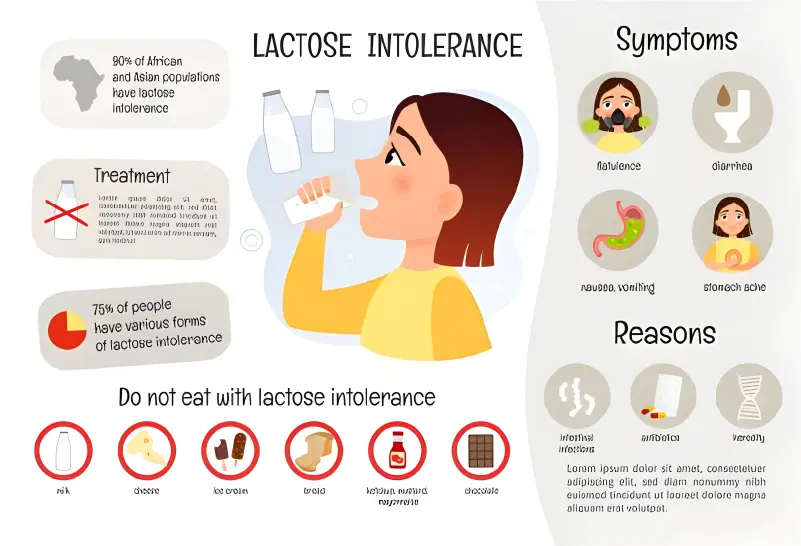

Lactose intolerance is a condition where your body cannot digest lactose, which is a sugar found in milk and dairy products. Lactose intolerance can cause symptoms such as gas, bloating, cramps, diarrhea, or nausea. Lactose intolerance can be caused by eating salad if it contains any dairy products, such as cheese, yogurt, or cream-based dressings. Some people with lactose intolerance may be able to tolerate small amounts of dairy products or lactose-free products. If you have lactose intolerance and want to eat salad, you should avoid dairy products or use alternatives such as olive oil, vinegar, lemon juice, or hummus.
Salad and Gluten Intolerance
Gluten intolerance is a condition where your body cannot tolerate gluten, which is a protein found in wheat, barley, rye, and their derivatives. Gluten intolerance can cause symptoms such as abdominal pain, bloating, diarrhea, constipation, fatigue, headache, or skin rash. Gluten intolerance can be caused by eating salad if it contains any gluten-containing ingredients, such as croutons, breadsticks, pasta, or wheat-based dressings. Some people with gluten intolerance may have celiac disease, which is a serious autoimmune disorder that damages the small intestine and requires a strict gluten-free diet.
If you have gluten intolerance and want to eat salad, you should avoid gluten-containing ingredients or use alternatives such as quinoa, rice, corn, or gluten-free products.
Salad and Fiber Intake
Fiber intake is the amount of fiber that you consume from your diet. Fiber is a type of carbohydrate that is not digested by your body but helps move food through your intestines. Fiber can have both positive and negative effects on your digestion, depending on how much you consume and how your body reacts to it. Fiber can help prevent constipation, lower cholesterol, regulate blood sugar, and promote a healthy gut microbiome. However, if you eat too much fiber or increase your fiber intake suddenly, it can also cause gas, bloating, and diarrhea.
This is because fiber can draw water into your colon and speed up the transit time of your stool, making it loose and watery. Some vegetables in salads, such as lettuce, spinach, kale, cabbage, broccoli, cauliflower, and carrots, are high in fiber and can cause diarrhea if you eat too much of them or are not used to them. If you want to eat salad and increase your fiber intake, you should do it gradually and drink plenty of water to help your digestion.
Conclusion
Salads are a great way to enjoy a variety of fresh and nutritious vegetables. However, sometimes they can also cause diarrhea for some people. This can be due to bacterial infections, fiber intake, food intolerance, or pesticides. To avoid diarrhea after eating salad, you can follow these tips:
- Wash your vegetables before eating them.
- Eat smaller portions of salad.
- Avoid certain ingredients that can trigger diarrhea in some people.
- Take probiotics to improve your gut health.
By following these tips, you can enjoy your salad without worrying about diarrhea. However, if you have persistent or severe diarrhea after eating salad, you should consult your doctor to rule out any serious medical conditions.
FAQs
Here are some frequently asked questions and answers about diarrhea after eating salad:
Can salad cause diarrhea in dogs?
Yes, salad can cause diarrhea in dogs. Dogs are carnivores and their digestive system is not designed to handle large amounts of plant matter. Eating salad can cause indigestion, gas, bloating, and diarrhea in dogs. Some vegetables in salads can also be toxic to dogs, such as onions, garlic, grapes, raisins, or avocado. If you want to feed your dog some vegetables, you should choose ones that are safe and beneficial for them, such as carrots, green beans, pumpkin, or sweet potato. You should also cook them lightly or puree them to make them easier to digest.
What to eat after diarrhea from salad?
After diarrhea from salad, you should eat foods that are bland, easy to digest, and can help restore the fluids and electrolytes that you lost. Some examples are:
- Bananas: Bananas are rich in potassium and pectin, which can help replenish the electrolytes and firm up the stool.
- Rice: Rice is a good source of carbohydrates and starch, which can help provide energy and bind the stool.
- Applesauce: Applesauce is high in pectin and soluble fiber, which can help reduce inflammation and diarrhea.
- Toast: Toast is low in fat and fiber and can help absorb excess fluids and acids in the stomach.
- Chicken broth: Chicken broth is a clear liquid that can help hydrate and soothe the digestive tract.
You should avoid foods that are spicy, greasy, fatty, dairy-based, caffeinated, or alcoholic, as they can worsen the diarrhea or irritate the stomach.
Does salad make you poop more?
Yes, salad can make you poop more. This is because salad contains a lot of fiber, which can increase the bulk and frequency of your stool. Fiber can also stimulate the movement of your intestines and help prevent constipation. However, if you eat too much fiber or increase your fiber intake suddenly, it can also cause gas, bloating, and diarrhea. Therefore, you should eat salad in moderation and drink plenty of water to help your digestion.
